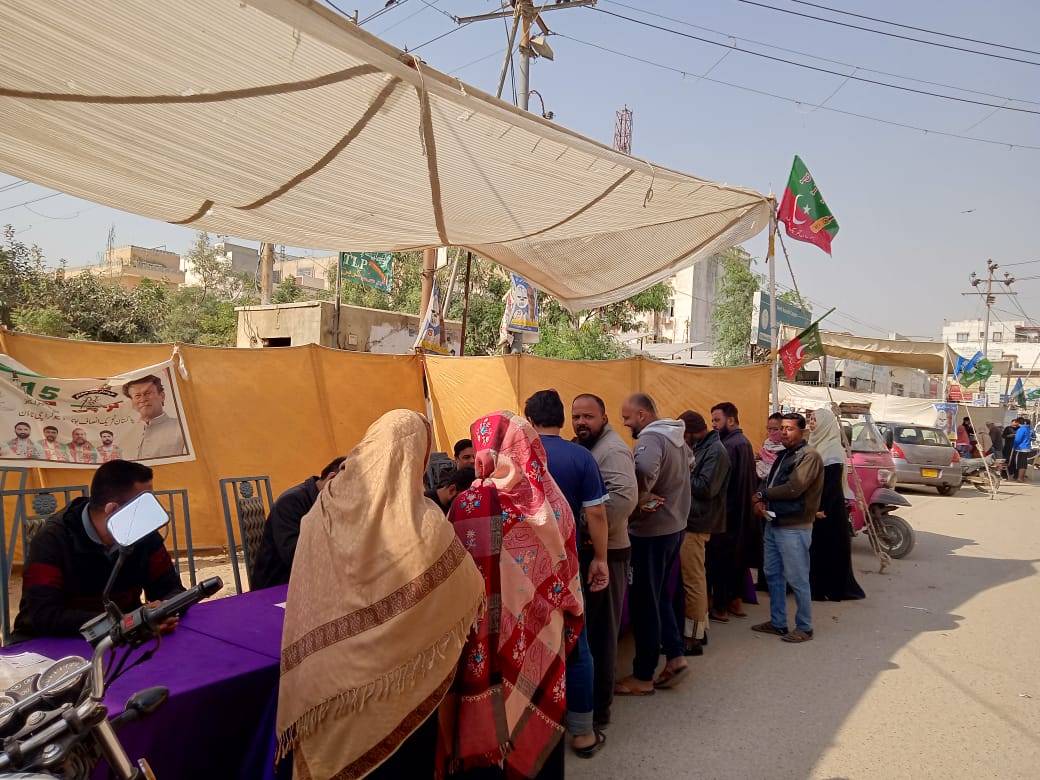KARACHI: Pakistan’s election oversight body defended on Monday a delay in release of official results of local government polls in the southern port city of Karachi, denying any irregularities in the electoral exercise that was boycotted by the Muttahida Qaumi Movement-Pakistan (MQM-P) party.
Several political parties contesting the second phase of the local government polls in the southern Sindh province criticized the Election Commission of Pakistan (ECP) for the delay in results, calling into question the transparency of Sunday’s high-voltage elections.
The voting process for the local government elections ended Sunday evening, but results of a majority of union councils (UCs) in Karachi and Hyderabad cities have yet to be released by the authorities.
Ejaz Anwar Chauhan, the provincial election commissioner, attributed the delay to a large number of voters stepping out of homes around Sunday noon and the completion of the voting process at several polling stations past 7pm.
“Presiding officers prepared and brought all Forms 11 and 12 to the ROs (returning officers) this morning... I can say this with confidence that no officer demonstrated negligence in this,” he told reporters in Karachi.
“Right now, the results are with our ROs, they are drafting all results and God willing, the results of all 246 union committees in Karachi will be finalized by the evening.”
The election commission was aware of its constitutional and legal responsibilities, Chauhan added.
In the absence of any clarity, various political parties claimed they were leading the contest in different parts of the province.
“I am closely monitoring the results of each polling station, ward and UCs,” former federal shipping minister and president of the Sindh chapter of Pakistan Tehreek-e-Insaf (PTI) party Ali Haider Zaidi said in a Twitter post.
He also accused the ruling Pakistan Democratic Movement (PDM) alliance of “playing games behind the scenes.”
“Political engineers should respect public mandate,” he added.

The picture posted on January 15, 2022, shows a polling camp of Pakistan Tehreek-e-Insaf in Karachi, Pakistan. (@PTI_KHI/Twitter)
Addressing a news conference in Karachi past midnight, Hafiz Naeem-ur-Rehman, the chief of Jamaat-e-Islami (JI) party in Sindh, said his political faction had grabbed 100 seats while results on 20 others were withheld after presiding officers disappeared from polling stations.
“It is the constitutional, democratic, and legal right of the party that election results are handed over to it,” he said, adding the country’s chief election commissioner had issued clear orders to provide Forms 11 and 12 to all parties but the rule had not been followed.
Defending the delay in results, Sindh Election Commissioner Chauhan said the results took time since returning officers had to look after five union committees.
“The results are being manually compiled as the RTS [Results Transmission System] hasn’t been used in these polls,” he maintained. “It takes time to compile the results.”
Murtaza Wahab, a spokesperson of the Sindh government and a senior Pakistan Peoples Party leader, urged the election body to ensure that results were issued on time.
ECP Deputy Director Sajjad Khattak, in a letter, directed the district returning officers (DROs) to address the concerns of political parties.
“This office has received various complaints from different political parties and candidates that the presiding officers are not giving copies of Form 11 and Form 12 to their polling agents present at polling stations,” the letter read.
Local government polls in Sindh were held after the ECP rejected repeated requests of the provincial administration to delay the elections in Karachi and Hyderabad due to concerns raised by the MQM-P over the delimitation of constituencies.
The party, which has a major presence in these urban centers, raised the allegations of “pre-poll rigging” before announcing not to participate in the voting contest.












